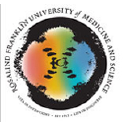What do they do?
Assist in operations, under the supervision of surgeons, registered nurses, or other surgical personnel. May help set up operating room, prepare and transport patients for surgery, adjust lights and equipment, pass instruments and other supplies to surgeons and surgeons' assistants, hold retractors, cut sutures, and help count sponges, needles, supplies, and instruments.
Also known as:
Certified Surgical Technician, Certified Surgical Technologist (CST), Operating Room Surgical Technician (OR St), Operating Room Technician (OR Tech), Operating Room Technologist (OR Tech), Surgical Scrub Technician, Surgical Scrub Technologist (Surgical Scrub Tech), Surgical Technician, Surgical Technologist (Surgical Tech)
-
0.8%
Change
Ranks #56 in job growth rate250Job Openings
Ranks #10 in net job growth
Looking for colleges that offer a specific major? Use the College Match Tool to find your best-matched schools and discover your estimated Net Price!
- Associate's degree (38%)
- Some college, no degree (34%)
- High school diploma equivalent (13%)
- Bachelor's degree (12%)
- Less than high school diploma (1%)
- Master's degree (1%)
- Doctorate or Professional Degree (1%)
People in this career often have these skills:
- Monitoring - Monitoring/Assessing performance of yourself, other individuals, or organizations to make improvements or take corrective action.
- Active Listening - Giving full attention to what other people are saying, taking time to understand the points being made, asking questions as appropriate, and not interrupting at inappropriate times.
People in this career often know a lot about:
- Customer and Personal Service - Knowledge of principles and processes for providing customer and personal services. This includes customer needs assessment, meeting quality standards for services, and evaluation of customer satisfaction.
- Medicine and Dentistry - Knowledge of the information and techniques needed to diagnose and treat human injuries, diseases, and deformities. This includes symptoms, treatment alternatives, drug properties and interactions, and preventive health-care measures.
- English Language - Knowledge of the structure and content of the English language including the meaning and spelling of words, rules of composition, and grammar.
People in this career often have talent in:
- Oral Comprehension - The ability to listen to and understand information and ideas presented through spoken words and sentences.
- Problem Sensitivity - The ability to tell when something is wrong or is likely to go wrong. It does not involve solving the problem, only recognizing that there is a problem.
- Near Vision - The ability to see details at close range (within a few feet of the observer).
- Speech Recognition - The ability to identify and understand the speech of another person.
- Arm-Hand Steadiness - The ability to keep your hand and arm steady while moving your arm or while holding your arm and hand in one position.
- Selective Attention - The ability to concentrate on a task over a period of time without being distracted.
- Manual Dexterity - The ability to quickly move your hand, your hand together with your arm, or your two hands to grasp, manipulate, or assemble objects.
People in this career often do these activities:
- Maintain sterile operative fields.
- Maintain inventory of medical supplies or equipment.
- Assist healthcare practitioners during surgery.
- Protect patients or staff members using safety equipment.
- Position patients for treatment or examination.
- Prepare biological specimens for laboratory analysis.
- Sterilize medical equipment or instruments.
- Clean medical equipment or facilities.
- Adjust settings or positions of medical equipment.
- Operate diagnostic or therapeutic medical instruments or equipment.
- Apply bandages, dressings, or splints.
- Order medical supplies or equipment.
- Monitor patient conditions during treatments, procedures, or activities.
- Record patient medical histories.
This page includes data from:

 Occupation statistics: USDOL U.S. Bureau of Labor Statistics Occupational Employment Statistics
Occupation statistics: USDOL U.S. Bureau of Labor Statistics Occupational Employment Statistics
 Videos: CareerOneStop, USDOL/ETA and the Minnesota Department of Employment & Economic Development
Videos: CareerOneStop, USDOL/ETA and the Minnesota Department of Employment & Economic Development









